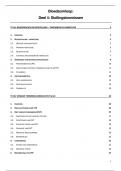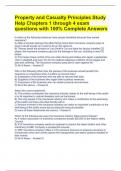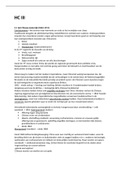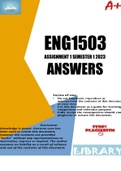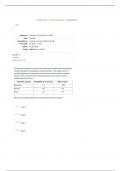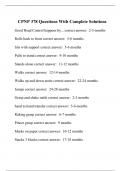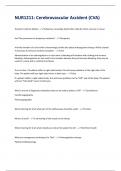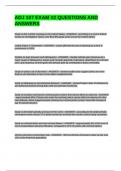Samenvatting
Samenvatting - Theorie cervicale wervelkolom
- Vak
- Instelling
Dit is 1 van de 6 delen van het grote vak 'Wervelkolom' in Kinesitherapie. Deze samenvatting is gebaseerd op alle slides van de theorie over de cervicale wervelkolom. De slides van dit vak waren chaotisch en een groot aantal. Ik heb deze wat beknopter en gestructureerd samengevat, maar het komt no...
[Meer zien]




